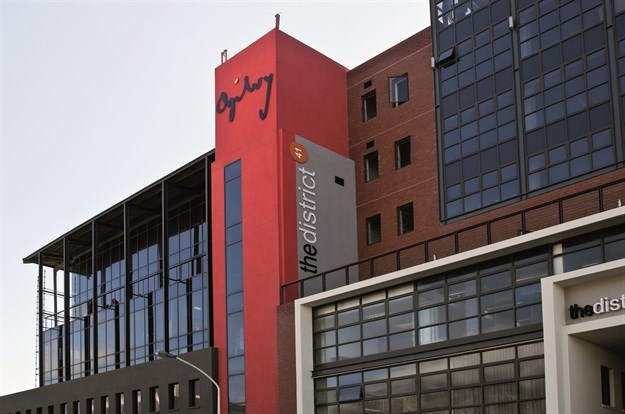
Top stories





Marketing & MediaAds are coming to AI. Does that really have to be such a bad thing?
Ilayaraja Subramanian 7 hours

More news


















The multi-tenant office and retail building has seven floors and five basement levels with 18,721m2 of lettable area that accommodates a community of 25 businesses. It is used by around 1,750 people daily who together consume around 45,000 litres of water per day.
Timothy Irvine, Growthpoint Properties’ regional asset manager for the Western Cape, says: “By taking The District and other commercial buildings off the water grid, and substituting municipal water with a safe and sustainable alternative source of drinking water, we are taking pressure off the city’s potable water reserves, adding to the resilience of the city’s water system, and contributing positively to the environment.”
At The District, a naturally occurring underground mountain spring flows to the building’s basement. For years this crystal-clear water has been pumped from the basement sump to prevent flooding. The water was pumped straight into the city’s storm-water system, where it flows into the sea less than a kilometre away.
Before the city’s water crisis, Growthpoint investigated the possibility of using this sump water as grey water for flushing the building's toilets. However, its design, which has evolved over the years (first it was redeveloped from four buildings into two and then into one) prevented this. However, Cape Town’s water woes spurred the team back to the drawing board and inspired them to think even bigger.
“It is incredibly frustrating to have a sustainable alternative water source that has to be flushed down the drain because it is not safe to drink. So, we challenged ourselves to find a way to use the sump to provide drinking water that is completely safe for human consumption for the entire building,” explains Irvine.

Growthpoint had to identify and adapt an existing technology never before used for this type of water filtration. It also had to work with the City of Cape Town to get special legislation drafted and passed to allow it to produce water on a large scale. In addition, it had to get buy-in from the building’s tenants.
Fortunately, the process was made easier by the positive response from major stakeholders, including the City of Cape Town and tenants of The District, specifically major tenant Ogilvy Cape Town.
Vicki Buys, MD of Ogilvy Cape Town, adds, “Thank you to the Growthpoint team for their efforts in making this self-sufficiency happen. In spite of these measures and the rain, the city’s crisis remains real and will only be resolved if we all keep usage at a low level permanently.”
Now, Growthpoint provides all the water for this bustling building from the basement, where its filtration plant can be found in its own sterile glass-fronted room. This enables anyone to view the sump water being made into drinking water. The plant’s filtration plant installation has also been designed to create a greater understanding and awareness about water. It is even labelled so that viewers can follow the process and learn how it works.
Some 140,000 litres of water flow naturally through the sump each day, and the filtration plant has been designed to clean the entire flow.
The legislation that the City of Cape Town drafted to enable Growthpoint to produce water on a large scale came into effect in November 2017, when Growthpoint was given the go-ahead to become a Water Services Intermediary. It can, however, only supply water to those with which it has a contractual obligation – its tenants. It does this at exactly the same rate as the municipality.
With this legislation in place, other commercial property owners are also enabled to do the same.
“Net-zero water initiatives are an important part of Growthpoint’s journey as it strives to make all its new developments net-zero by 2030,” points out Irvine. “This is an exciting leap forward on our journey, which is for the betterment of everyone.”
The next building it is aiming to take off-grid is 200 on Main. All the buildings identified are in Cape Town, as this is the only city with the legislation in place to enable it.
“Growthpoint would certainly consider doing the same with suitable buildings in other cities and is happy to work with them to achieve this,” says Irvine.
Growthpoint is already ensuring that all the new buildings it develops across South Africa have the potential to go off the water grid to future-proof its property assets.